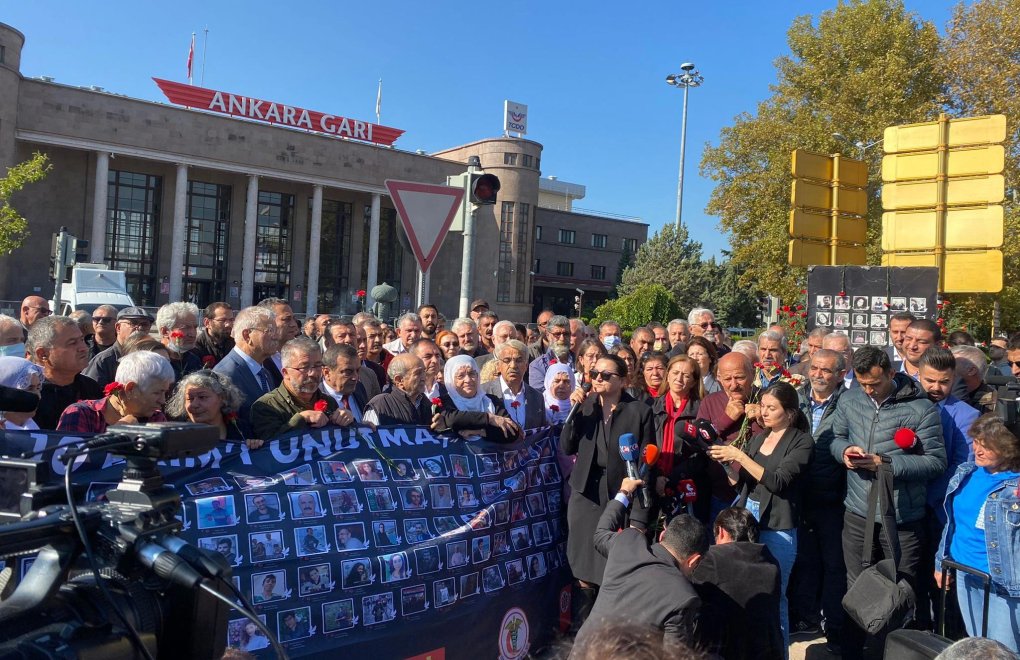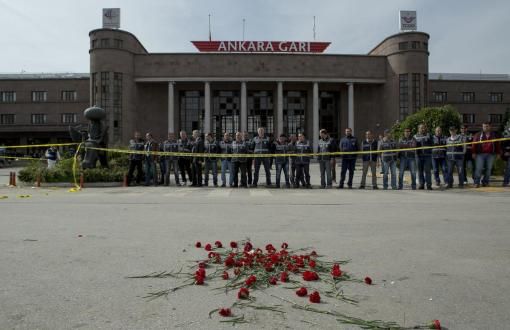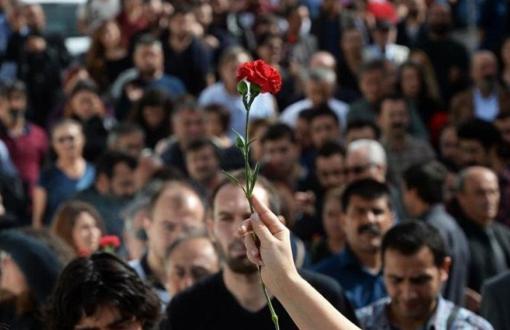Physical Address
Indirizzo: Via Mario Greco 60, Buttigliera Alta, 10090, Torino, Italy
Physical Address
Indirizzo: Via Mario Greco 60, Buttigliera Alta, 10090, Torino, Italy

A court has rejected an attempt to overturn the acquittal of a defendant on charges of crimes against humanity in connection with the 2015 Ankara train station bombing.
The bombing occurred on Oct 10, 2015, during the Labor, Peace, and Democracy Rally in the capital city, organized by pro-Kurdish and leftist groups ahead of the elections. ISIS carried out a twin suicide bombing that killed 103 people and wounded more than 500 others.
Ten defendants were later sentenced to aggravated life imprisonment in the case.
Ekici, who was the only individual in Turkey’s legal history to face an indictment for crimes against humanity, was acquitted of that charge in 2024. The 10 October Lawyers’ Commission appealed the verdict.
The 22nd Penal Chamber of the Ankara Regional Court of Justice upheld Ekici’s acquittal, describing it as “in accordance with the law.”
The court dismissed the appeal in a single-sentence ruling. It reasoned that those who witnessed the attack, including survivors and relatives of the victims, could not be considered direct victims of the crime and thus had no legal standing as plaintiffs.

Ilke Işık, a lawyer representing the victims, criticized the ruling and warned about the implications of the statute of limitations.
“There is a legal provision in this country regarding crimes against humanity, but no case had ever been prosecuted under it until now,” she said. “The October 10 Ankara bombing was one of the country’s largest massacres. It involved a case in which ISIS members were tried and convicted. This ruling by the regional court represents the judiciary’s stance in the first crimes against humanity trial in the country.”
Işık said it was unfathomable to exclude survivors and victims’ families from the category of those directly harmed.
“How can our clients, those who were injured, those who lost loved ones, not be considered direct victims?” she asked. “This massacre caused them personal harm. If they are not considered the victims of a crime against humanity, then who is?”

Işık also emphasized the potential impact of the ruling on the ongoing prosecution of fugitive suspects.
“If the court had recognized this as a crime against humanity, there would be no statute of limitations,” she noted. “But now that it isn’t classified as such, the charges are limited to murder and crimes against the constitutional order. While the trial of fugitives continues, this decision means their cases may eventually be dismissed due to the statute of limitations.”
Criticizing the court for issuing a one-sentence ruling, Işık said, “Their decision shows a deliberate effort to let the statute of limitations run out. They still can’t bring themselves to call ISIS a group that committed crimes against humanity.”
She added, “Years ago, then-Prime Minister Ahmet Davutoğlu referred to them as ‘angry young men.’ A decade later, this same tolerant approach to ISIS persists.”
Işık stressed that although ISIS members carried out the attack, they were not acting alone.
“Numerous entities were responsible at every stage of this massacre. Some of those responsible are state institutions. Others are public officials. Yet, despite abundant evidence, not a single official has been held accountable,” she said. “They want to bury this case, prevent new evidence or discussions from emerging, and close the file with the conviction of a handful of ISIS members.”

Işık argued that the Turkish judiciary had long failed in dealing with ISIS.
“These suspects, both those in custody and fugitives, were monitored for years. Yet they weren’t arrested. And when they were, they were released. Borders were handed over to ISIS, and no one was punished. What we’re facing is a judiciary that has shown tolerance to ISIS,” she said.
“Even in 2025, Turkey’s judiciary still refuses to recognize ISIS as an organization committing crimes against humanity. They dismiss these charges with a single sentence, without any meaningful legal analysis.”
Işık drew attention to ISIS’s ongoing violence abroad.
“We’re talking about ISIS. Even today, massacres against Assyrians and Druze communities in Sweida continue. ISIS is still organizing massacres and committing crimes against humanity. The Ankara bombing was no different,” she said.
“They attacked people who gathered for peace, democracy, and freedom, people they viewed as infidels or enemies due to their beliefs or lifestyles. Ignoring that truth is not acceptable, legally or morally.”
Işık summarized the legal developments leading up to the recent appeals ruling:
In 2019, the Ankara Chief Public Prosecutor’s Office filed an indictment against Erman Ekici, stating the bombing had been committed with intent to commit a crime against humanity. The indictment was accepted by the Ankara 4th Heavy Penal Court, which continued the trial until July 2024, when it acquitted Ekici of the charge.
The file had first come before the courts in 2018, resulting in various convictions, but Ekici’s case was separated at the time. A new indictment followed, which led to the crimes against humanity trial.
Many of the objections raised by the 10 October Lawyers’ Group were not addressed by the Court of Cassation. The overall case has been criticized for failing to prosecute all responsible parties and for overlooking the role of public officials, despite the presence of significant evidence.
The 2019 trial was considered the second phase of the case, following the Court of Cassation’s earlier reversal of a prior verdict. The Ankara 4th Heavy Penal Court issued two decisions—one in 2018 and another in 2024. The latest verdict again cleared Ekici of crimes against humanity.
With the appeals court upholding the acquittal, the ruling effectively confirms that the 2015 Ankara bombing is not legally recognized in Turkey as a crime against humanity.
(AB/VK)